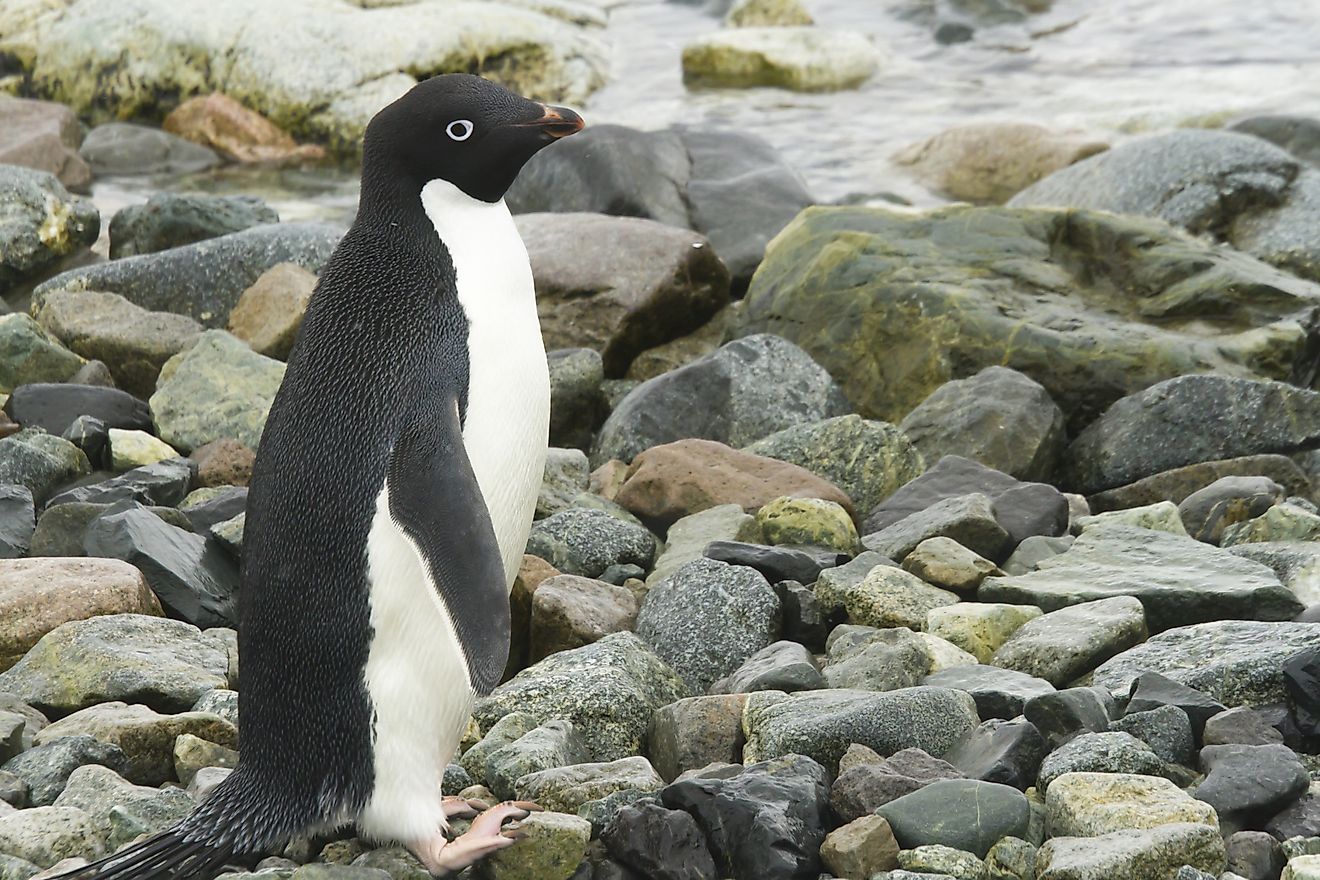Adelie Penguin Facts: Animals of Antarctica

5. Physical Description
The Adélie penguin can only be found along the coast of Antarctica. They are among a variety of seabirds to be found distributed primarily within the cold climes of the far south, together with the south polar skua, the snow petrel, and the emperor penguin. The Adélie penguin is typically 18 to 28 inches in length as adults, and are therefore considered mid-sized seabirds. Still, some would say that they even have an overweight and wide look about them. The white rings surrounding each of their eyes, along with their black-tipped red bills, are among the most distinctive features of these birds.
4. Diet
Living in one of the coldest continents of the world, the Adélie penguin subsists primarily on small animals found in sub-Antarctic environments, such as glacial squid, Antarctic krill, Antarctic silverfish, sea krill, and ice krill. These seabirds are accomplished swimmers, and have been known to dive to depths of 575 feet as they search for food. In regions where such food is more abundant, these penguins prefer to hunt in shallower waters, usually not descending below depths of about 250 feet. Adélie penguins have proven to be efficient movers on their hunts, and can travel distances of up to 185 miles in search of a good meal.
3. Habitat and Range
Adélie penguins are only found in the beachfronts, rock cliffs and ledges of the Antarctica where temperatures run very low. At present, almost 4 million breeding pairs are present in 251 breeding colonies of Adélie penguins. These seabirds live in colonies especially during mating season where up to 250,000 breeding pairs congregate. Variations in colony size are due mainly to seasonal changes in the climate of specific regions of the Antarctic continent. Climate fluctuations threaten the existence of Adélie penguins, along with large scale destruction of their natural habitats. According to reports, almost 65% of their population has been lost due to events related to global warming and destruction of the seas where the majority of their food sources are to be found. With this alarming rate of decline, the IUCN has listed these seabirds as a species that is “Near Threatened”, despite the millions still present in Antarctica.
2. Behavior
A lot of people think Adélie penguins are fun loving creatures because of images showing them sliding down snow-covered hills and their funny style of waddling. In truth, experts say such activities are not considered "play time" activities for these seabirds. They slide in order to conserve energy and, while they are very capable walkers, they waddle in order to cover very long distances in search of food for themselves, their mates, and their young ones. Because they live in colonies, Adélie penguins are very sociable creatures, although they may exhibit aggressive behavior in the form of such activities as bill jousting, head tucking, and alternate staring. When stressed, these birds flap and wave their wings around, and the feathers at the backs of their necks will stand up.
1. Reproduction
Sexual maturity for Adélie penguins is achieved at three years of age, although many don’t actually begin to mate until they turn eight. The males are the ones who prepare the nests, after which they will cackle and wait for females to acknowledge their calls. When one does, the two bow to each other, and then the male proceeds to move the pebbles around the nest to make it more comfortable for the female. Adélies are famously monogamous, and many remain with their same partners not only during a single mating season, but also for the remainder of their reproductive lives.











